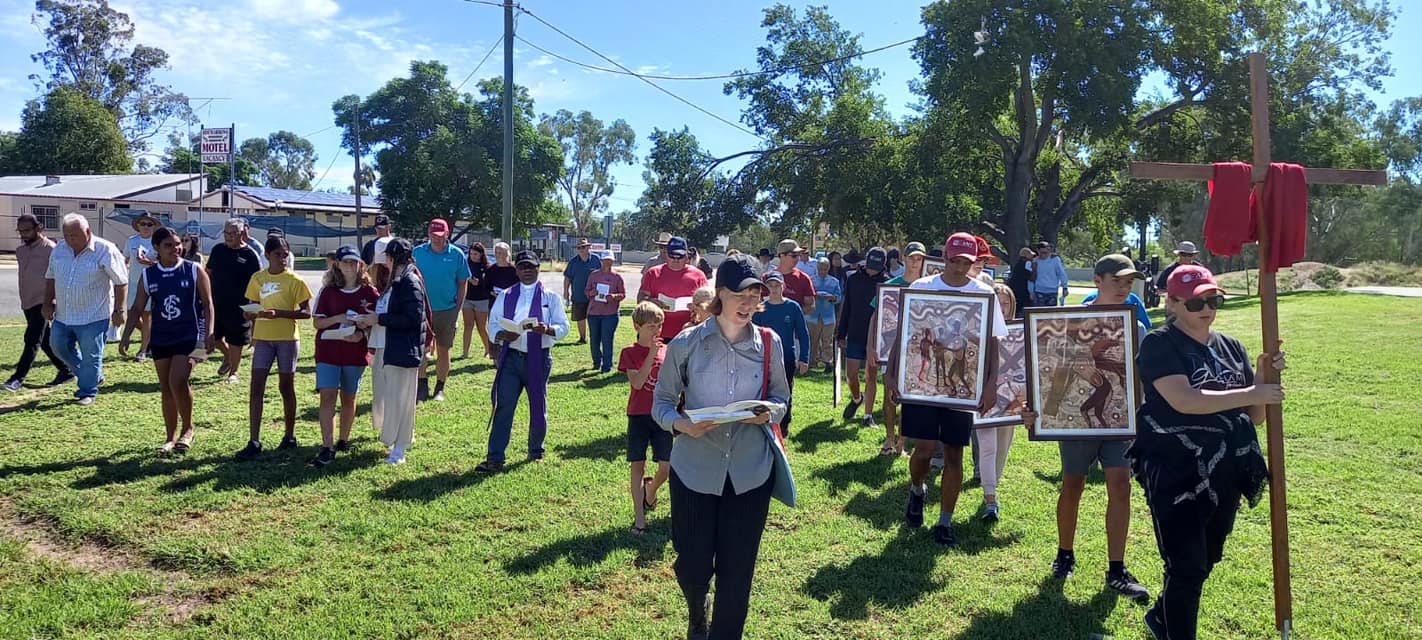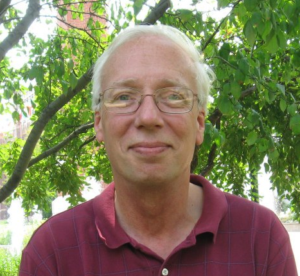On the Side of the Synod from Rural Australia

I’m writing from Rome, where I’ve been since the end of September and where there is a buzz of anticipation in the air as the final days of the XVI Ordinary General Assembly of the Synod of Bishops progress. This past Wednesday, the Assembly released a letter to the People of God that expressed the hope that all might “concretely participate in the dynamism of missionary communion indicated by the word ‘synod,’” and we anticipate a synthesis document to be released this Saturday. In this week’s blog, we have an excerpt from a reflection from Mercy Sister Elizabeth Young of rural Australia, who was one of the diaconal women who shared her testimony at our Symposium for a Synodal Diaconate, which we held at the Jesuit Curia in Rome on October 18th, 2023. -Anna
In 2021, impressed by Discerning Deacons, I felt inspired to encourage this conversation in Australia around reinstituting women into the diaconate of the Catholic Church. With the blessing of my order, I started a blog called Liturgy on the Margins. It has two main aims:
‘PRESENT: To recognise, celebrate and promote diaconal ministry in Australia, especially as it is experienced through liturgy in marginal spaces and communities. and
FUTURE: To identify people and situations that yearn for such ministry, and potential leaders to carry out this ministry through formal Church endorsement.’
In the blog we simply share stories, and I have interviewed so many people about their experience of diaconal ministry. Some have been deacons with a permanent vocation, some priests, Sisters, chaplains, lay ministers, diaconal formators, and deacons in other Christian denominations. They speak from reality – real people in real situations. We focus on experience rather than opinion. The ministries in the blog have all been authorised in various ways by the Church, for example women sent to remote towns by Bishops as ‘pastoral workers’ to lead a parish community, including Sunday liturgies and performing baptisms and funerals.
So far, we’ve learned that the diaconal call is very specific, and flourishes alongside many other lay and ordained ministries. However, in critical ways the diaconate as a permanent vocation enhances the faith life of Catholics in Australia, as well as the wider community.
We’ve found that proper authorisation of people in diaconal ministry situations is extremely important. For those receiving the ministry, it gives reassurance of qualification, training, supervision and lifelong commitment to God’s work. For those performing the ministry, it gives spiritual foundations, ethical responsibilities, standards of operating, lines of accountability and recognition of vocation. And for the institutional Church, it gives security in having ministries bound to the diocese and not ‘going rogue’. Authorised people are genuine, not provisional or contingent, or ‘filling in’ until the real minister shows up. Historically in our Catholic Church, authorisation for ordinary sacramental and liturgical faculties and the ministry of leadership is ordination. ‘Lay ecclesial ministry’ is much more a departure from tradition than ordained ministry. No other lay ministries (such as pastoral associate, catechist or Sister) have the same traditional, affective or operational qualities. I know this, as I have been all three.
Already, in situations of need, bishops, parishes and Catholic agencies seek creative solutions. Often they call upon someone who is faithful, spiritually mature, valued by the community and willing to learn. For some, this is a temporary responsibility. However, for others, it is a deeper calling that they are willing to pursue further. Many who are currently precluded from ordained diaconal ministry have very similar stories to those who have been given the sacramental grace of diaconal ordination.
Concurrently with the Liturgy on the Margins blog, we started a group called Australian Catholics Exploring the Diaconate. Together with clergy, we promote the diaconate as a whole. We have held two webinars for the Feast of St Phoebe and just over a month ago, a retreat.
In Australia, there has been quite a bit of discussion on completing the restoration of the diaconate for men and women, including in the consultation for Australia’s Plenary Council and this Synod on Synodality. There is also the infrastructure. As I mentioned, lay people have already been given ‘ad hoc’ faculties in certain circumstances to fulfil what would be called diaconal ministries. These are accepted by people in need of such ministry. There are diaconal formation programs and openness from formators. And while I am sure it would not be smooth sailing, is anything that is really worth doing?
 Elizabeth Young, RSM is an instituted Catechist and Parish Life Coordinator in rural Australia. She also has the diocesan roles of Director for Catholic Mission; secretary of the Diocesan Pastoral Council; secretary of the Diocesan Ecology, Peace and Justice Commission; and local coordinator for the Plenary Council/Synod. In 2021, Elizabeth founded the blogsite Liturgy on the Margins and the group Australian Catholics Exploring the Diaconate to highlight existing diaconal ministry and to encourage new solutions to respond to liturgical and sacramental needs.
Elizabeth Young, RSM is an instituted Catechist and Parish Life Coordinator in rural Australia. She also has the diocesan roles of Director for Catholic Mission; secretary of the Diocesan Pastoral Council; secretary of the Diocesan Ecology, Peace and Justice Commission; and local coordinator for the Plenary Council/Synod. In 2021, Elizabeth founded the blogsite Liturgy on the Margins and the group Australian Catholics Exploring the Diaconate to highlight existing diaconal ministry and to encourage new solutions to respond to liturgical and sacramental needs.


